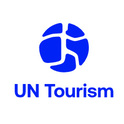The potential of mountain tourism: focus of UNWTO Conference in Georgia
The potential of mountain tourism to foster economic development, as well as to raise awareness on environmental protection, was the major topic addressed at the 3rd World Tourism Organization (UNWTO) Euro-Asian Mountain Resorts Conference. The event was held in Tbilisi, Georgia on 4-7 April, under the patronage of the Ministries of Tourism and of Economy and Sustainable Development of Georgia.
More than 300 participants from 32 countries gathered for the conference.
Opening the event, Prime Minister of Georgia Giorgi Kvirikashvili said: "It is significant to note that mountains make up more than 65% of the country's landscape, and the government has been active in effectively using the aforementioned resource and advancing opportunities in tourism. According to various studies, Georgian ski destinations have the potential to generate more than 300 million US dollars in revenues from visitors. In this light, the Government of Georgia has focused considerable financial resources on sustainable development of the country's mountain destinations, including implementation of major infrastructural projects."
"Besides its economic potential for remote areas and isolated regions, mountain tourism is a key catalyst to raise awareness on sustainable tourism and to help us become more committed travelers, institutions and enterprises, a challenge especially pertinent at the present moment as we are celebrating the International Year of Sustainable Tourism for Development," said Taleb Rifai, UNWTO Secretary-General.
The conference was structured around five key sessions conducted by 25 international speakers from 17 countries:
- Sustainable tourism in mountain destinations: challenges and long-term outlook
- Mountain resort planning: an integrated planning approach and illustration of good practices in developing mountain destinations
- Investment and incentive policies: legislative framework and investment-friendly practices
- Product diversification and attracting new markets: a strategic approach to improve the positioning of mountain destinations
- New revolutionary tools for mountain destinations: innovation and the digital media
Prior to the conference, eight companies and associations joined the Private Sector Commitment to the UNWTO Global Code of Ethics for Tourism: Adjara Group Hospitality; Caucasus Travel; Explore Georgia; Georgian Events, Georgian Incoming Tour Operators Association; Georgian Tourism Association (GTA); Living Roots; and Tourist Agency 'VisitGeorgia'.
On the occasion, UNWTO Secretary-General Rifai was awarded the Order of Honor by Prime Minister Kvirikashvili for his contribution to the development of tourism in Georgia, for strengthening the relationship between UNWTO and Georgia, and for raising awareness about Georgia as a tourism destination internationally.
About UN Tourism
The World Tourism Organization (UN Tourism) is the United Nations agency responsible for the promotion of responsible, sustainable and universally accessible tourism.
As the leading international organization in the field of tourism, UN Tourism promotes tourism as a driver of economic growth, inclusive development and environmental sustainability and offers leadership and support to the sector in advancing knowledge and tourism policies worldwide.
Our Priorities
Mainstreaming tourism in the global agenda: Advocating the value of tourism as a driver of socio-economic growth and development, its inclusion as a priority in national and international policies and the need to create a level playing field for the sector to develop and prosper.
Promoting sustainable tourism development: Supporting sustainable tourism policies and practices: policies which make optimal use of environmental resources, respect the socio-cultural authenticity of host communities and provide socio-economic benefits for all.
Fostering knowledge, education and capacity building: Supporting countries to assess and address their needs in education and training, as well as providing networks for knowledge creation and exchange.
Improving tourism competitiveness: Improving UN Tourism Members' competitiveness through knowledge creation and exchange, human resources development and the promotion of excellence in areas such as policy planning, statistics and market trends, sustainable tourism development, marketing and promotion, product development and risk and crisis management.
Advancing tourism's contribution to poverty reduction and development: Maximizing the contribution of tourism to poverty reduction and achieving the SDGs by making tourism work as a tool for development and promoting the inclusion of tourism in the development agenda.
Building partnerships: Engaging with the private sector, regional and local tourism organizations, academia and research institutions, civil society and the UN system to build a more sustainable, responsible and competitive tourism sector.
Our Structure
Members: An intergovernmental organization, UN Tourism has 160 Member States, 6 Associate Members, 2 Observers and over 500 Affiliate Members.
Organs: The General Assembly is the supreme organ of the Organization. The Executive Council take all measures, in consultation with the Secretary-General, for the implementation of the decisions and recommendations of the General Assembly and reports to the Assembly.
Secretariat: UN Tourism headquarters are based in Madrid, Spain. The Secretariat is led by the Secretary-General and organized into departments covering issues such as sustainability, education, tourism trends and marketing, sustainable development, statistics and the Tourism Satellite Account (TSA), destination management, ethics and risk and crisis management. The Technical Cooperation and Silk Road Department carries out development projects in over 100 countries worldwide, while the Regional Departments for Africa, the Americas, Asia and the Pacific, Europe and the Middle East serve as the link between UN Tourism and its 160 Member States. The Affiliate Members Department represents UN Tourism's 500 plus Affiliate members.
Rut Gómez Sobrino
Principal Media Officer
(+34) 91 567 81 60
UN Tourism
